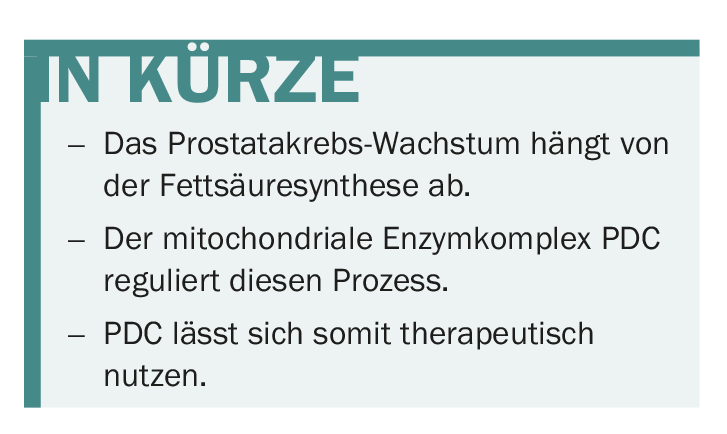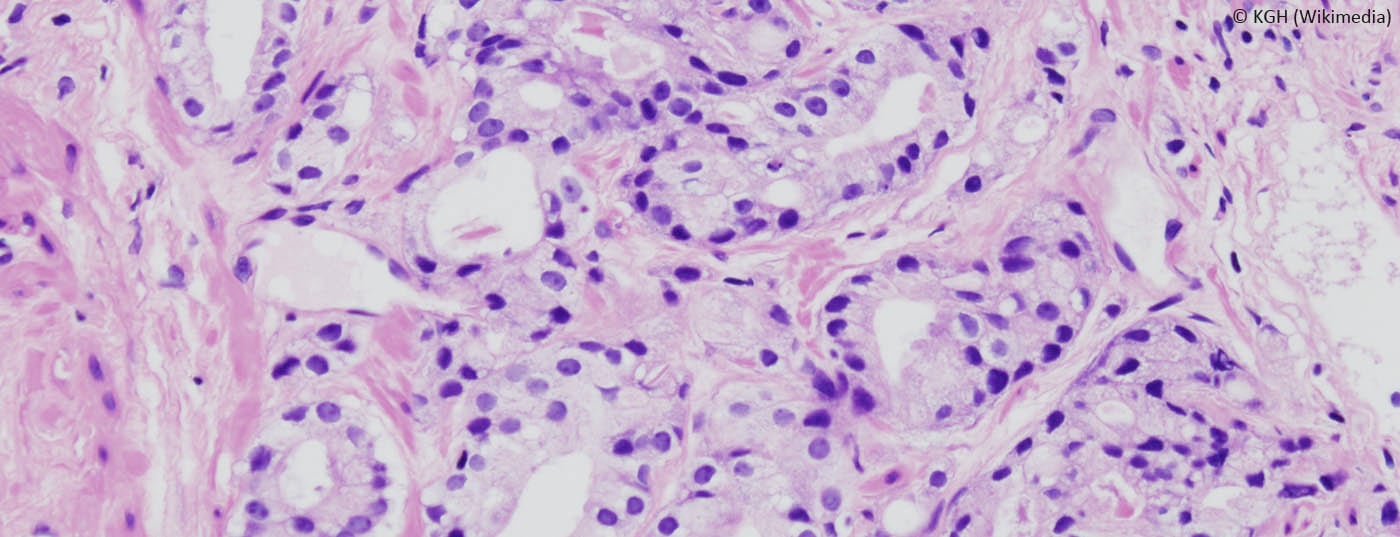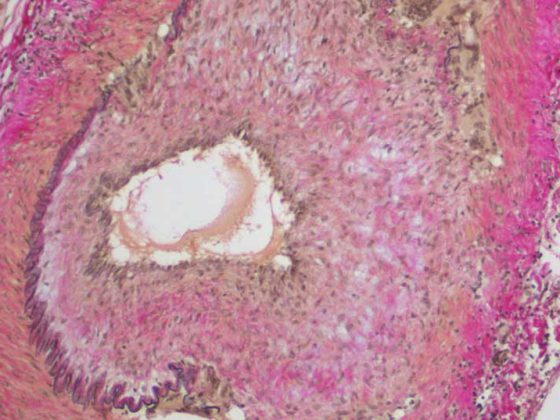Future drugs could reduce fats in the cancer cell by inhibiting a specific, newly researched metabolic component. The tumor would be “starved out.” Results of a research group from Bellinzona.
The complex being researched is called the pyruvate dehydrogenase complex, or PDC for short. It is found in prostate cancer in the mitochondria and nucleus. Surprisingly, this means that mitochondria are fundamentally involved in tumor cell growth, contrary to a long-held theory. The mitochondria are considered “electricity power plants” and are responsible for the necessary energy production for the cell. The theory of Otto Warburg, winner of the Nobel Prize in Medicine, was that increased glucose intake, bypassing mitochondrial metabolism, was the main factor supporting tumor cell growth.
Now, however, it has been shown: The mitochondrion in particular is crucial for prostate tumor cells – because it can regulate fatty acid synthesis (lipogenesis) via PDC. PDC thus becomes an interesting target for future cancer therapies. The enzyme complex is about ten times more active in prostate tumor cells than in a normally growing cell. Tumor cells can only grow and metastasize if they produce lipids effectively. Increased glycolysis alone does little to help here, the study published in Nature Genetics showed.
Depriving the tumor of “food
The tumor cells produce a lot of lipids due to the strong activation of PDC. Conversely, can this mechanism be exploited to deprive the tumor of its “food”?
It is known that a high-fat diet increases the risk of prostate cancer, so overweight people experience an increase in risk. Now, this in no way means that tumor patients should follow a strict diet. This would probably do more harm than good.

The new findings on this “fuel effect” of lipids are in fact valuable because they reveal for the first time a very specific starting point for reducing fat in tumor cells: Pharmaceutical agents might be able to selectively inhibit the mitochondrial enzyme and thus also fatty acid synthesis, thus slowing tumor growth without harming normal cells.
Source: Chen J, et al: Compartmentalized activities of the pyruvate dehydrogenase complex sustain lipogenesis in prostate cancer. Nature Genetics 2018. DOI:10.1038/s41588-017-0026-3 [Epub ahead of Print].
InFo ONCOLOGY & HEMATOLOGY 2018; 6(2): 4.











